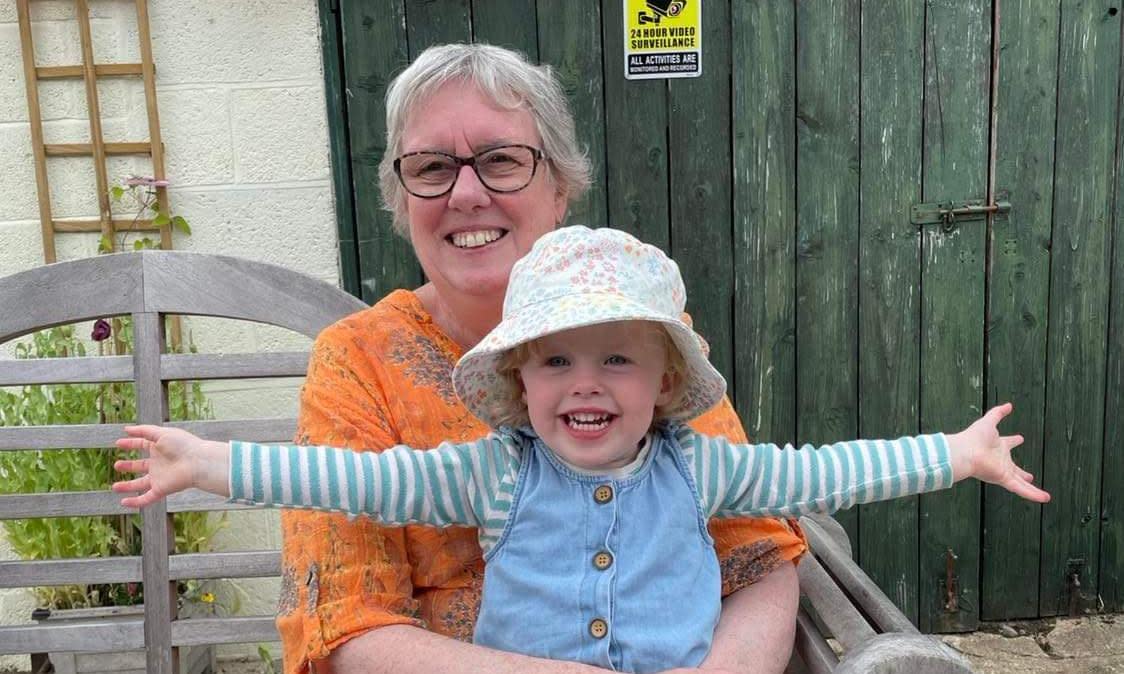‘I can’t take it much longer’: workers too young for UK pension

People in middle age tell of difficulties finding suitable work and managing financially
At 62, Julie Hipkiss has five years left before she can collect her pension. Working in a physical profession where she is on her feet for hours every day despite having osteoarthritis, sleep apnoea and hypertension, she is not sure she can survive that long.
Hipkiss has already tried to find less physically demanding work. She resigned from her beloved job working with autistic adults last year, but nothing came up in her rural, Midlands community. After six months of unemployment, she was forced to take a new job almost as physically demanding as the last.
“By any honest measure, I’m unfit for work,” she said. “Despite that, the only job I could find was in catering, where I’m on my feet for five hours at a time without a break. I only started this job in January, but I can’t take it for much longer.”
Hipkiss does not object, in theory, to a later retirement age. “I’d be quite happy to have a little job in admin, but there are no opportunities to retrain,” she said. “We have an ageing population with increasingly poor health and this is simply not acknowledged.
“A support system for our age group to allow us to feel valued and continue to contribute meaningfully would surely support the economy rather than leave a vast amount of life experience undervalued and laid to waste,” she added.
Hipkiss said that even though her knee is so bad she can barely walk some days, her condition is not considered serious enough for her to be judged unfit for work or for the NHS to put her on a waiting list for a knee replacement.
“To go on the waiting list, I’d have to reach the unbelievably high bar to be found unfit for work,” she said. “But even when my condition deteriorates to that point, the waiting list is two years. I would be considered unemployable after a two-year employment gap in my mid-60s.”
Hipkiss thinks that any extended retirement age should be nuanced according to people’s health conditions. “If I had to work until I was 71 in my current state of health, doing the jobs available to me now, I’d be dead by 72,” she said.
“It needs to be worked out so that everyone has the same time after retirement to enjoy life. Someone healthy, in a non-physical job, could work longer and still have many years of life left to enjoy their retirement. It’s not the same for someone like me. The system should recognise that.”
Terry Kirton, from south Wales, agreed. A full-time carer for his 97-year-old father, Rod, he receives about £300 a month carers allowance. “After the recent increases in the cost of living, it isn’t enough,” he said. “Dad needs to be kept warm, and that now costs far more than it used to.”
To fund the gap, Kirton is considering taking out some of his pension when he turns 55 in September. “Although, having done that, I have no idea how I am going to survive with whatever the pensions I have left if I live to retirement age,” he said.
“I don’t really think this age thing has been thought out fully,” he added. “I am a nurse by profession and can’t imagine working on the wards into my late 60s and early 70s. Does the government expect builders to carry on until 70? Manual workers? Firemen?”

 Yahoo News
Yahoo News 
